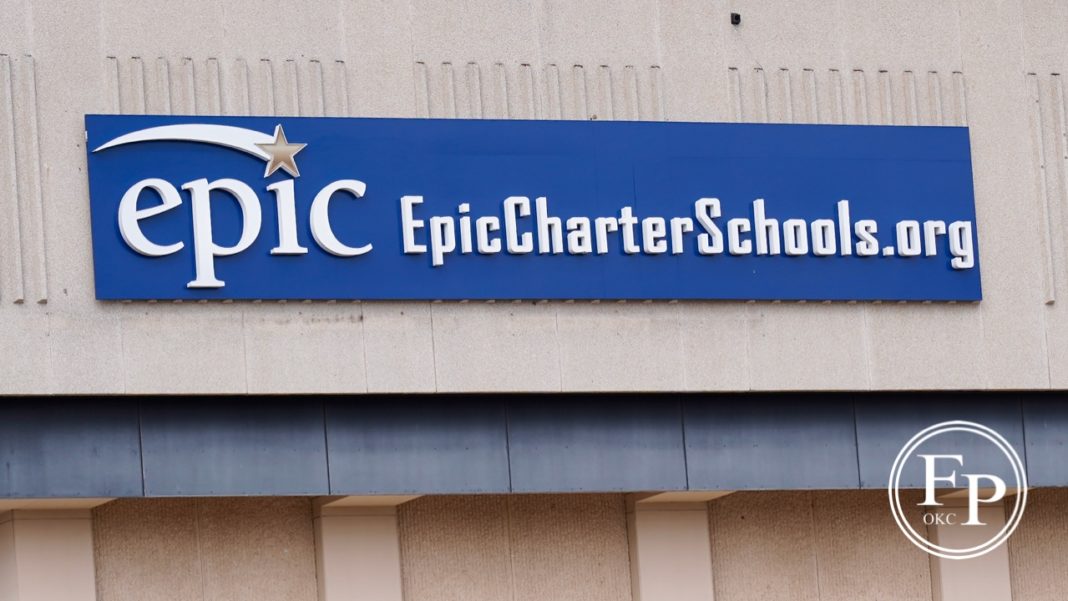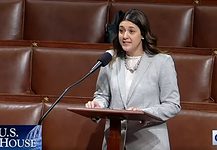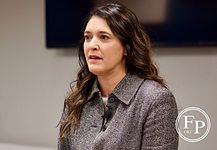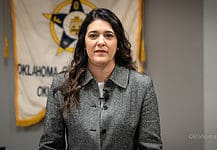Last Updated on February 26, 2020, 11:11 AM | Published: February 26, 2020
Stories about online charter schools rarely seem to end happily, but with a frightening consistency, they do end.
In several states throughout the U.S., online charter schools closed after officials determined they inflated attendance or created “ghost students,” then squirreled away millions of dollars in public money based on those inflated numbers.
Opinion
From George Lang, our lead opinion columnist
Epic schools exposure
An extensive investigation by the Tulsa World revealed that a similar scenario is allegedly playing out with Oklahoma’s Epic Charter Schools.
In the Sunday edition of Tulsa World, Andrea Eger reported that Epic Charter Schools, which was the subject of search warrants executed in 2019 by Oklahoma State Bureau of Investigation (OSBI), “is paying its for-profit management company millions more in taxpayer dollars every year for school expenditures that are never audited and which Epic claims are shielded from public scrutiny.”
For a year, Epic Charter Schools denied Tulsa World’s open records requests for information on the organization’s so-called “Learning Fund,” in which funds were collected and then issued to each Epic student in $1,000 disbursements. Epic’s attorney repeatedly argued that once the funds were moved to the management company, they were “no longer public funds” and were not subject to the Oklahoma Open Records Act.
It was only after the newspaper began working with its own attorney that it was able to acquire documents showing the millions that were shifted from the Learning Fund to the school’s for-profit management company, Epic Youth Services.
The documents lent credence to the 2019 warrants’ allegations that Epic Charter Schools founders Ben Harris and David Chaney pocketed $10 million by enrolling so-called “ghost students.” These were students who were enrolled in either private schools or were being homeschooled but were counted as part of Epic’s online student body.
As is depressingly common, the allegations against Epic Charter Schools are nearly identical to those facing online charter schools in other states. They are so similar, it is easy to imagine hundreds of people pouring into a generic hotel ballroom filled with straight-back chairs to learn how to soak a state’s public education monies for fun and profit.
Last summer in Daleville, a suburb of Muncie, Indiana, two affiliated online charter schools, Indiana Virtual School and Indiana Virtual Pathways Academy, came under close scrutiny from federal investigators after the state examiner determined that the schools reported having twice the number of students that actually attended and collected at least $40 million more than it would if it reported the numbers accurately.
Daleville Community Schools Board voted Aug. 26 to begin a shutdown process that would conclude Sept. 30, but both schools beat them to the punch, telling students to stop their coursework Aug. 20 and informing teachers they would not be paid for July and August.
Similar cases took place in California and Ohio, according to Washington Post. In May 2019, 11 people were indicted in San Diego for opening 19 charter schools and then funneling the state funds into real estate investments.
Some good charter schools
I do not mean to cast aspersions on all charter schools. I have friends whose children have achieved mightily at John W. Rex Charter School, but not all proponents of such schools have the best interests of students in mind.
Only six percent of the nation’s public school students attend charter schools. As such, few people even know what a charter school is.
According to the Education Committee of the States (ECS), an organization that tracks education policy, charter schools are “semi-autonomous public schools that receive public funds. They operate under a written contract with a state, district or other entity (referred to as an authorizer or sponsor).
This contract — or charter — details how the school will be organized and managed, what students will be expected to achieve, and how success will be measured. Many charter schools are exempt from a variety of laws and regulations affecting other public schools if they continue to meet the terms of their charters.”
This definition explains why charter schools are popular with the kind of politicians, organizations and citizens who have never met a regulation they did not hate at first sight.
Attacking public schools
For years, many pro-charter school activists and groups have done their level best to corrode the reputation of public schools. In Oklahoma, Canadian County Republican Party chair Andrew Lopez signed a 2018 letter calling for the state “to abolish public education,” and that Oklahoma schools should be funded through advertising, tuition fees and sponsorships instead of property taxes. By the way, Lopez said he was against property taxes as well.
I mention this just to show how mainstream anti-public education sentiments have become. Lopez apparently does not even want charter schools to happen.
But plenty of people do. Some of them have familiar names. For instance, Education Secretary Betsy DeVos has weakened oversight of public education with one hand while pushing an odious school choice model and, according to WaPo, calling public education a “dead end.”
Expenditures not audited
Charter schools do not have to share how they spend much of their money, a regulation by which public schools must abide. and it is that lack of transparency that allowed Epic Charter Schools to allegedly move all those former public funds into its for-profit management group.
In Epic’s statements through its attorney, the organization asserted that it, “like all public schools, is audited each year for all public funds, and the learning fund expenditure records requested by your client have not been a part of these audits because those funds are not public dollars.”
Epic’s attorney asserted it was a public school when that fact was beneficial to the argument, and then claimed that the funds were not public funds. Simply put, Oklahoma must clarify what constitutes public money, or these incidents will repeat ad infinitum.
This is exhausting, but hiding behind being a public school while asserting privileges reserved for charter or private schools is a lot like taunting an opponent and then saying, “You wouldn’t hit a guy with glasses, would ya?” But in this case, it is not Bugs Bunny taking the inevitable punch.
It is us.
George Lang has worked as an award-winning professional journalist in Oklahoma City for over 25 years and is the professional opinion columnist for Free Press. His work has been published in a number of local publications covering a wide range of subjects including politics, media, entertainment and others. George lives in Oklahoma City with his wife and son.











